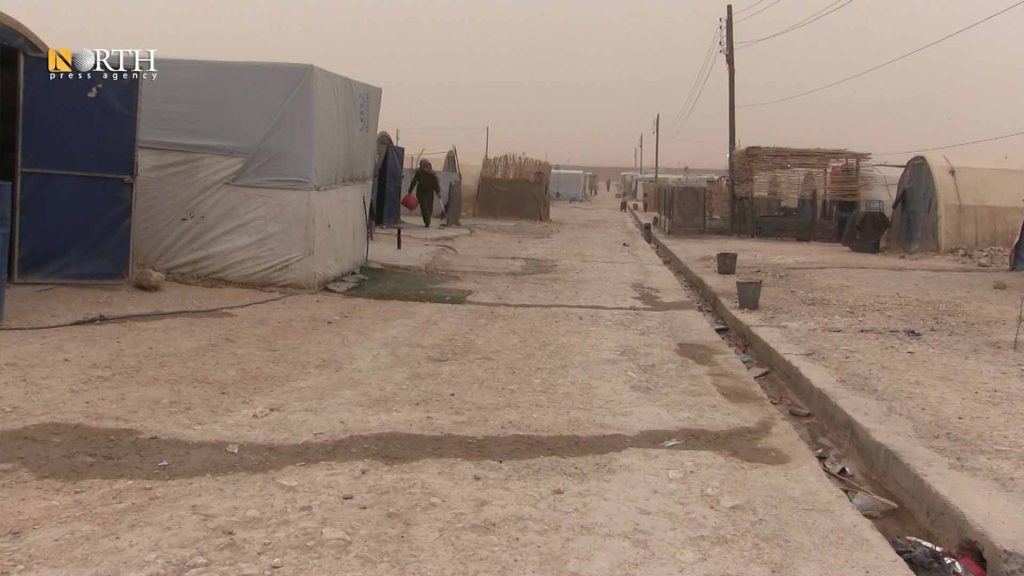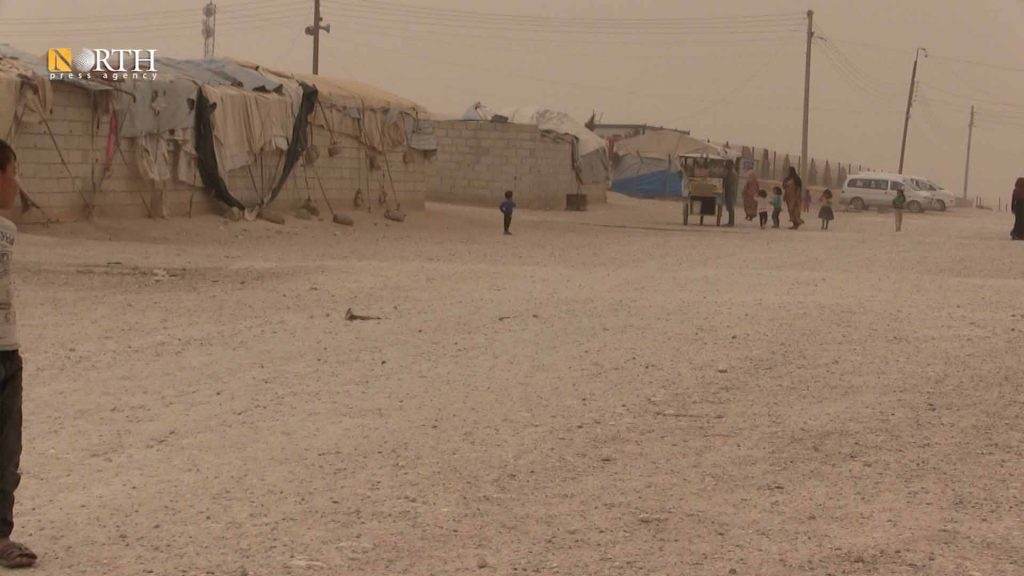AIN ISSA, Syria (North Press) – Sitting in front of his camp, Muhammad Issa, 70, recalls the past years, comparing between now and then when “life was brighter and Ramadan was more joyful.”
Issa displaced the village of al-Hijaziyah, 16 km southwest of Tel Abyad, and took Tel al-Samen camp in the north of Raqqa as a shelter.
“We were happier and richer. We used to purchase an abundant quantity of everything. Thank God we had everything,” he told North Press.
“But today we have nothing to eat,” he said longing for the past days.
Tel al-Samen squatter camp houses up to 6,000 IDPs, composing 1,200 families from Tel Abyad area in northern Syria. All of the IDPs there miss the joyful atmosphere of Ramadan prior to displacement.

Everything now is different. Houses are replaced with nylon tents. Food amount is low and had not enough portion of vegetables, fruit or meat, like used to be in the past.
In terms of clothes, some IDPs still wear the same costume they wore during displacement as they are unable to purchase new ones.
In the past, the family gathered to celebrate Ramadan together and even the expats came back from abroad. Nowadays, every single family is torn apart and only communicate via cell phones, according to other IDPs.
“Ramadan has become a burden for the IDPs. People fast in the camp amid dust,” Issa added.
IDPs of Tel Abyad and Sere Kaniye (Ras al-Ain) spend the holy month of Ramadan away from their homes. The military operation launched by Turkey and their affiliated Syrian armed opposition factions (also known as the Syrian National Army/SNA) in October 2019 pushed the civilians to reluctantly fled their homes and shelter in camps in NE Syria.
Afra’ Ali, a 40-year-old woman in the camp, also misses the rituals of Ramadan. Suffering from displacement, making returning home almost a difficult dream to come true.
She said they hope to practice their habitual rituals during Ramadan and that cannot be achieved as long as they live in the camp. “We struggle to provide for our family. All we think about is how to secure the two meals of Ramadan: the suhour and the iftar,” she said.
Ali, like many other IDPs in the camp, is unable to afford new clothes or sweets for the Eid al-Fitr, a celebration follows Ramadan.

Ali complains prices hiked with the start of Ramadan. “We have only tea and bread for the iftar.”
Sherin Hesso, 33, and a mother of six, said displacement and inflation took away the joy of Ramadan and of the Eid al-Fitr.
Standing next to her tent, Hesso added that she was unable to purchase new clothes for her children to celebrate the Eid al-Fitr or even sweets amid lack of assistance.
“Ramadan is difficult to fast here especially for those who has many children,” she noted.
“Vegetables are too expensive. Assistance has been suspended and we only receive bread,” she concluded.

